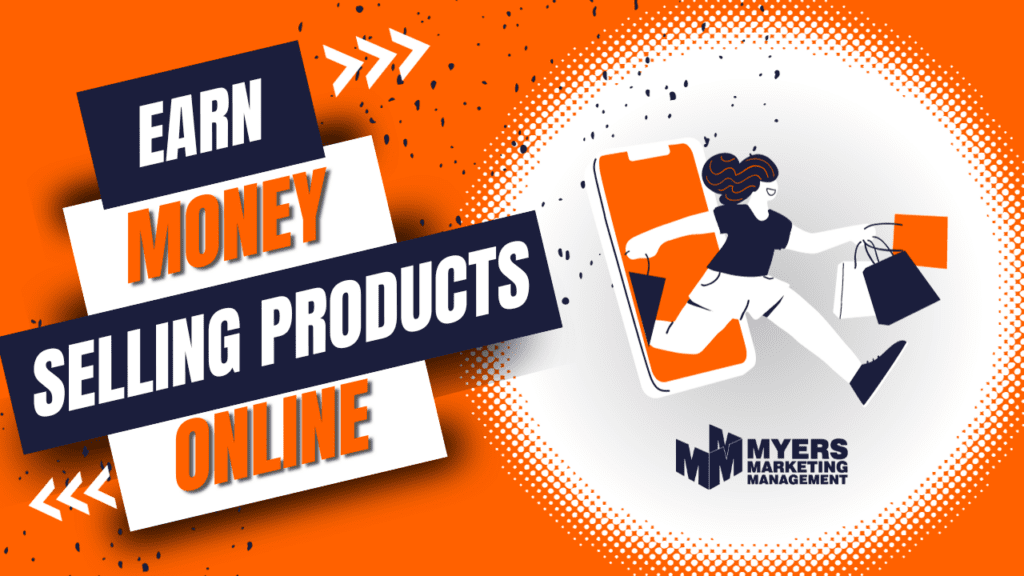Business Marketing Tulsa: E-commerce Platforms Making a Difference for Local Retailers

Tulsa’s digital marketplace is evolving rapidly. As businesses strive to establish a robust online presence, the choice of an e-commerce platform becomes paramount. The Web Department at Myers Marketing Management delves deep into the world of e-commerce platforms, highlighting their features, benefits, and how they cater to the unique needs of Tulsa businesses.
The E-commerce Landscape in Tulsa
In today’s digital age, merely having an online presence isn’t enough. The platform you choose can significantly influence your business’s success. With a plethora of options available, Tulsa businesses must understand each platform’s strengths and align them with their specific needs. This alignment is crucial for ensuring smooth operations, effective marketing, and ultimately, customer satisfaction.
Hey there, my name is D.A. Myers, and I’m the web lead and AD strategist here at Myers Marketing Management. Welcome to Business Marketing Tulsa, E-commerce Platforms, and Video. Today, we want to dive into the different e-commerce platforms that are out there. Which ones are being used by Tulsa businesses, and what are the different ways that our marketing can fit into each of these different platforms? Just a real quick overview, and if you have any questions, please don’t hesitate to reach out. We’d love to answer any of the questions that you have.
As for the e-commerce platforms, there are a bunch out there. I’m just going to cover a couple of them. The first one is going to be WooCommerce. So this is a WordPress-based e-commerce platform. It turns a blog into an e-commerce site. It allows for people to check out using a variety of different checkout platforms, whether that’s Stripe, Square, or just regular checkouts using WooCommerce’s own checkout system. But it takes all of this information, all of these possible platforms, narrows it down to a single one with a single checkout. If you’ve ever shopped online on a smaller website, it’s probably been WooCommerce. This is mainly for businesses that don’t typically have a brick-and-mortar store. They have a place online where they can start to sell some of their wares and goods. They even have integrations with print-on-demand stores like Printify, and you can start up a store from next to nothing. Now, obviously, there are a lot of different add-ons that you can get to help with that, but all of these different ways that you can display the information. It’s the most customizable out of all of these different options. You can make it look exactly how you want if you have something in your head. You just have to have the technical know-how to make sure that it gets onto the page.
So, all of that to say, WooCommerce is typically for businesses that don’t have a brick-and-mortar store, but they have this amazing ability to get products online. It is a little bit more involved, and so, as a business owner, as a side hustle even, this is something that you have to keep in mind. WooCommerce is highly customizable but also highly hands-on.
The next one is one that’s a little bit more popular, but it’s called Shopify. So, this is where you log on, choose a theme, and just start adding products to your heart’s desire. With Shopify, I’ve seen a lot of boutiques and places with brick-and-mortar stores that have a dual integration of Shopify. You have the online portion, the e-commerce portion, and then you also have the POS system. Shopify has an amazing POS system that directly integrates. It pulls from the same inventory so you’re not selling products that you don’t have, especially if they’re non-digital products. But they have a lot of marketing integrations – email, making sure that we’re sending out emails to abandoned carts, and just a whole bunch of integrations. They nickel and dime you a little bit, so that’s something to be aware of if you’re wanting to go into Shopify. You want to make sure that you get the full scope of what your bill is going to be if you get on Shopify. But it’s an amazing platform. They also host the website, and it’s kind of an all-in-one package.
The next one that we’re going to go into is Wix. Wix has its pluses and minuses, but really what I’ve found Wix works best for is digital products and services. So, I’m not shipping anything; I’m not physically delivering something to your house. But if I’ve got a class or if I am selling my lawn services, this is a great platform for you to be able to show, “These are the different levels of products that I have,” and all of them are here. You can select from one; you can pay on there, and everything is kind of all in one because they also host your website.
Next is going to be Squarespace. This is typically what I’ve found, again, for people that have brick-and-mortar stores. But really, this is for people that are on the go, people that don’t have a brick-and-mortar store where they’re sitting and doing inventory. This is for the people that are on the road, going to shows and using Square as their card reader. It gets all of your products that you have on Square that you’re already selling and makes them able to be online so that you can either deliver or people can pick it up. There is a little bit of shipping in there, but ultimately, this is for in-person, face-to-face. It’s one of the best card reader, in-person platforms out there that has an e-commerce addition onto it.
Squarespace is not what it originally started as, and this is something they’ve expanded onto. Square itself was the card reader that enabled business owners to take payment wherever they were at, and that’s what they’re really, really good at.
Finally, there are a couple of new ones on the scene, and I’m going to mention a couple here, but they follow the same premise. Kajabi, which some people are familiar with, and Go High Level is another one of those platforms. These are more for physical products, more for classes. If you’ve ever signed up for a MasterClass, it’s probably been on a platform that is similar to Kajabi or Go High Level. These platforms enable you to host video and host content, PDFs, allow people to sign up for those and have access to all the information. They even have something called the drip campaign, where you can have access to the first part for the first week and then the second part in the second week. They just drip that information out to you. It’s perfect for these types of classes because if you were trying to do this on your WordPress website or even a Squarespace website, there’s not really a great way to do this. There are workarounds, and you can make it work, but Kajabi and Go High Level for classes that are not in person that are all virtual, it’s perfect. So, depending on what you have and what you’re trying to sell and what you’re trying to market, all of these different platforms, one is going to be tailored more to your business than the other.
Now, obviously, all of these lend themselves to social media marketing. If you go on your social media page and you post your link and some information about it, that’s perfect. People can go to the website and purchase right away. Same thing with email. We’re giving links and making sure that people have access to that. But getting into the specifics of which marketing efforts are going to be better for each of those, reach out to us. We’d be happy to have that conversation and to really dig into what is the platform for your product, what are the best marketing efforts for your product and your platform. Just reach out to us; we’ll have a conversation, and no strings attached. We just like to meet people and we like to see businesses succeed, which is why we got into this in the first place.
WooCommerce: The Customizable Powerhouse
What is it? A WordPress-based platform, WooCommerce seamlessly transforms blogs into dynamic e-commerce sites.
Who’s it for? Especially beneficial for businesses without a physical storefront, it offers unparalleled customization options.
Features:
- Versatile Checkout Options: Whether it’s Stripe, Square, or WooCommerce’s system, businesses have a variety.
- Integration Capabilities: From print-on-demand stores to various payment gateways, it’s all possible.
- Customization: The platform’s most significant strength. If you can visualize it, WooCommerce can help you create it.
- Shipping Solutions: Beyond digital products, WooCommerce offers comprehensive shipping solutions for physical goods.
Shopify: The Comprehensive Solution
What is it? A globally recognized platform, Shopify offers a blend of simplicity and functionality.
Who’s it for? Ideal for boutiques and brick-and-mortar stores aiming to expand their reach online.
Features:
- Integrated POS System: Ensures real-time inventory management, preventing overselling.
- Marketing Arsenal: From email campaigns to retargeting ads for abandoned carts, Shopify has it all.
- All-in-One Package: Beyond just a selling platform, they offer hosting, ensuring businesses have everything they need in one place.
Wix: The Digital Service Specialist
What is it? Known for its user-friendly interface, Wix has made website creation a breeze.
Who’s it for? Best suited for businesses offering digital products or services.
Features:
- Diverse Service Showcasing: Whether it’s different service tiers or digital product catalogs, Wix handles it all.
- Integrated Payment System: Ensures seamless transactions, enhancing user experience.
- Hosting Included: Wix takes care of both the storefront and the backend, simplifying operations for businesses.
Squarespace: The Mobile Entrepreneur's Companion
What is it? Initially a card reader system, Squarespace has evolved into a comprehensive e-commerce solution.
Who’s it for? Perfect for businesses on the move, attending trade shows, or setting up pop-up shops.
Features:
- Square Integration: Facilitates in-person payments, making it ideal for businesses without a fixed location.
- E-commerce Capabilities: From product listings to online payments, Squarespace offers a holistic solution.
- Mobility: Designed for businesses on the go, it ensures they can sell anywhere, anytime.
Emerging Platforms: Kijabi and Go High Level
What are they? These are the new kids on the block, tailored for virtual classes and content.
Who’s it for? Ideal for businesses offering online courses, masterclasses, or subscription-based content.
Features:
- Content Hosting: From videos to PDFs, these platforms ensure businesses can offer a variety of content.
- Drip Campaigns: They allow businesses to schedule content release, ensuring sustained engagement.
- Tailored for Virtual Offerings: Designed with non-physical products in mind, they offer a seamless user experience.
- Marketing Your E-commerce Business
Every platform offers unique marketing opportunities. Whether it’s social media integrations, email marketing tools, or SEO capabilities, businesses need to harness these features effectively. The Web Department at Myers Marketing Management specializes in helping businesses navigate these options, ensuring they get the maximum bang for their buck.
In the bustling digital marketplace of Tulsa, the right e-commerce platform can be the difference between success and obscurity. Whether you’re a budding entrepreneur or an established business looking to expand online, there’s a platform tailored for you. And if you’re in doubt, the experts at Myers Marketing Management are always ready to guide you, ensuring your business not only survives but thrives in the digital age



